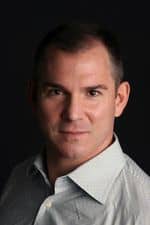 In a new op-ed published in The New York Times, columnist Frank Bruni delves into the au courant debate on the intersection of same-sex marriage and so-called “religious liberty."
In a new op-ed published in The New York Times, columnist Frank Bruni delves into the au courant debate on the intersection of same-sex marriage and so-called “religious liberty."
Bruni highlights how foes of marriage equality, having failed to prove why government has a vested interest in discriminating against same-sex couples, have resolved that the best way to defend their advocating for discrimination is to sound the dog whistle of “religious liberty.” In other words, the enemies of equality argue that they must be exempt from treating all people equally under the law because to do so would infringe upon their “religious liberty.”
Bruni's searing and insightful piece also directly responds to a statement made by 2016 Presidential hopeful Jeb Bush who, reacting to the on-set of same-sex marriage in Florida, a state he was once governor of, attempted to walk a fine line between his party's discriminatory views on same-sex marriage and the view held by a majority of Americans that same-sex couples are entitled to the freedom to marry. Said Bush,
 "We live in a democracy, and regardless of our disagreements, we have to respect the rule of law. I hope that we can show respect for the good people on all sides of the gay and lesbian marriage issue – including couples making lifetime commitments to each other who are seeking greater legal protections and those of us who believe marriage is a sacrament and want to safeguard religious liberty."
"We live in a democracy, and regardless of our disagreements, we have to respect the rule of law. I hope that we can show respect for the good people on all sides of the gay and lesbian marriage issue – including couples making lifetime commitments to each other who are seeking greater legal protections and those of us who believe marriage is a sacrament and want to safeguard religious liberty."
What's wrong with invoking religious liberty in a debate on same-sex marriage? Bruni explains:
"For starters, it perpetuates confusion, some of which is cynically engineered, about the consequences of marriage-equality laws. They do not pertain to religious services or what happens in a church, temple or mosque; no clergy member will be compelled to preside over gay nuptials. Civil weddings are covered. That's it.
But also, “religious liberty” sounds disturbingly like a dog whistle to the crowd that wants specified, codified exemption from anti-discrimination laws; it's one of the phrases they lean on. If Bush didn't know that, he should have. If he did, he just sided, for the moment, with religious extremists."
As James Esseks, a lawyer with the A.C.L.U. told Bruni, this new argument that places "religious liberty" at its heart "is the new wave, the new frame" that will be used to try and re-orient the national conversation on same-sex marriage by those hell-bent on stemming the tide of freedom and justice for same-sex couples.
Read Bruni's full piece here.



